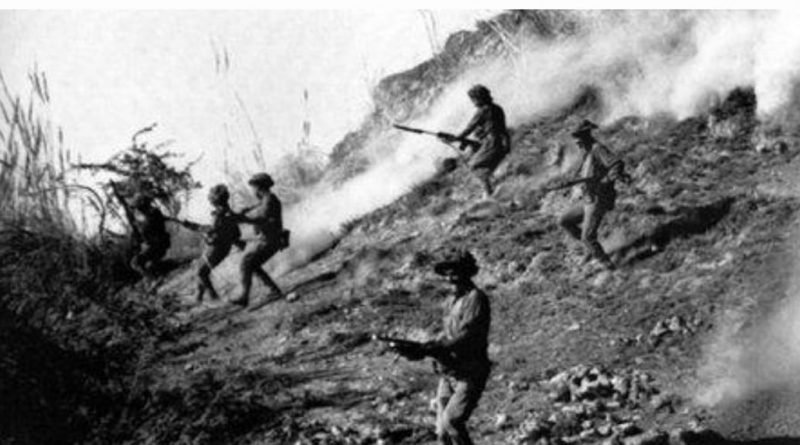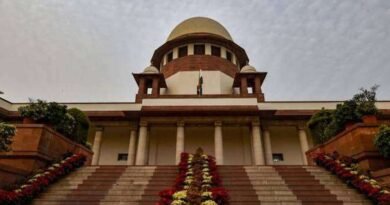The bad idea with us is that we believe in truth and not in fiction!
By: M S Nazki /ANN Desk
December 1971 Comilla was freed as the Pakistan army stood beaten or surrendered. They had no option either way and Pak army surrendered! Probably the biggest ever!
-‘India fed them and I still remember that prisoners were allowed to speak back home via All India Radio but that day I was more interested in the last day of a test match which India was playing England and Bhagwat Chandrashekhar was on fire and Eknath Solkar at leg gully. Though I was listening to the commentary, the action was at the legendary Oval in England’!
-‘To start it’s these are the words of a journalist in a newspaper published from Dhaka, when he wrote that Comilla was a town of significance! It still is and now it has become more as recent developments are not so heartwarming! I told you I love to maintain a diary!
‘-The Comilla Cantonment massacre was carried out by the Pakistan Army in East Pakistan (present-day Bangladesh) in March 1971. Lt. Colonel Mansoorul Huq claimed that 17 Bengali army officers and 953 soldiers were executed in Comilla Cantonment on the night of 27–28 March 1971. His claim was considered concrete by the Hamoodur Rahman commission. According to other sources, the victims were 17 Bengali officers and 915 men (all Muslims), killed during their disarming on the orders of the Lt. Gen.’
-‘On December 8 in 1971, some districts of the country including Comilla and Pirojpur had been liberated from the clutches of Pakistani occupation forces. To mark the day, district administrations chalked out several programs- rally, placing of floral wreaths on martyrs’ graves, discussion meeting, cultural programs etc.’
-‘Comilla was freed today (that is what the Bangladesh Journalist wrote). He added that during the Liberation War, several battles were fought against the occupation forces and their local collaborators by the freedom fighters (Mukti Bahini).’
-‘On August 14 in 1971, the enemy forces (that time Pakistan Army) invaded Majigachha area under Comilla Sadar upazila and set ablaze villages and looted valuables. They also killed more than 400 people including women and children.’
-‘On November 11, 1971, the Pakistani army and their accomplices attacked the freedom fighters at Betiara under Chauddagram upazila. The battle continued the whole day and nine freedom fighters embraced martyrdom.’
-‘On November 28, the Jagannath Dighi area under Chauddagram upazila and on December 4, Barura and Chandina upazilas were freed from the Pakistani occupation. The battle at the Comilla Airport area was another event worth remembering. On the night of December 7, 1971, fierce battle was fought between the freedom fighters and the Pakistani army.’
-‘Earlier, during the Liberation War period, the Pakistani occupation forces tortured and killed thousands of people, and dumped the bodies at Asgara Bazaar and Beltali Bazaar mass graveyards under Laksam upazila.’
-‘That was what happened in Bangladesh then East Pakistan. Bangladesh got freedom only when AAK Niazi was humbled and it was all over in 13 days, basically twelve! We never do a story until and unless we are very sure of it!’
Yes everyone writes Military history and so do the historians from the other side i.e. the enemy! I love reading and hence I got a book called ‘Crossed Swords’. Based on 30 years of research and analysis, this definitive book is a profound, multi-layered, and historical analysis of the nature and role of the Pakistan army in the country’s polity as well as its turbulent relationship with the United States. Shuja Nawaz examines the army and Pakistan in both peace and war. Using many hitherto unpublished materials from the archives of the United States, the United Kingdom, and the General Headquarters of the Pakistan Army, as well as interviews with key military and political figures in Pakistan and the United States, he sheds light not only on the Pakistan Army and its US connections but also on Pakistan as a key Muslim country in one of the world’s toughest neighborhoods. In doing so, he lays bare key facts about Pakistan’s numerous wars with India and its many rounds of political musical chairs, as well as the Kargil conflict of 1999. He then draws lessons from this history that may help Pakistan end its wars within and create a stable political entity. Shuja Nawaz a respected Pakistan military historian and was among the early scholars to have painted a credible mosaic of how the Indian military, intelligence agencies and Mukti Bahini had commenced widespread military incursions into over 20 salient inside East Pakistan by 20 November to keep Lt. Gen. Niazi, the martial law administrator of East Pakistan, guessing about where the major thrust was coming from. Nawaz was not wrong in any way!
Comilla South Eastern Sector (Pakistani designation Eastern Sector): This lay to the east of Meghna, contains Sylhet, Comilla and the main seaport Chittagong. Control over Ashuganj, Chandpur and Daudkandi was vital to approach Dhaka. 3 divisions were to secure the area between Ashuganj and Chandpur, then if possible approach Dhaka by crossing the Meghna using helicopters or ferry – whichever was available.] The Indian Navy would blockade Chittagong. Mukti Bahini support was expected in all phases of the operation. The same was done! After Comilla it was only a matter of time as the Indian Army kept marching till they reached Dkaka where all was going to be over! Finally it was and Bangladesh had been liberated.
This was a perfect political-military-intelligence synergy that allowed India to dictate the pace of operations in the 1971 war with Pakistan. Even before a full-scale war started between India and Pakistan on 3 December 1971, India had already won the Bangladesh battle on the operational front with a deft orchestration of multiple tools of statecraft. By November 1971, almost 10 million refugees from East Pakistan had fled their homes and streamed into India in the wake of mass killings perpetrated on the Bengali population by the Pakistan military under the ‘Butcher of Bangladesh’, Lt. Gen. Tikka Khan. Prime Minister Indira Gandhi and her foreign minister, Sardar Swaran Singh, were on a whirlwind global tour to try and impress on the West and the US of the pressing need to intervene and stop the genocide and stem the flow of refugees into India. They did so in an honest attempt to avoid war, but were realistic enough to keep their instrument of force ready should their efforts fail. The efforts failed and thus started the war that could have only one winner! It had to be India and it was India. But that was 1971 but what is happening now or happened was distasteful. Bangladesh people have seen violence and India has helped them from a well in the hell and still is but what happened in the past week should not have!
I will close this one with a small incident from Mayang Imphal (Mayang means foreigner in meitei language ). The place is swarmed with the Bangladesh people. Basically who drifted here in 1971. The incident goes something like this, ‘every time we went there this small girl Laila used to come to us and then go away! Initially we did not know why she did so but that day we took another route. Sure enough the kid was there too! But that day I asked her, ‘how did you know that we were coming this way when you always saw from the other one’! Her reply smilingly was ‘you will not find big fish here. Just cross the other side and go to Ethoi barrage and you will find huge ones’! Though it looked plain and non discrete at that time, it was not the next day early morning four by the watch! PREEPAK undergrounds were under our pump! A few days later we were on the same track in Mayang Imphal but we never saw that dark complexioned Laila again! She had left the very day we met her the last. To where we were never to know! There was a reason for that too but I will never be able to tell that! Maybe Comilla in Bangladesh is not the same place now but in 1971 War Indian Army along with the freedom fighters as the Bangladeshi journalist said had freed the place! What happened and why it happened will remain a blot on Bangladesh history! Why so? Even the Bangladeshi journalist who talked about the freedom fighters of 1971 will not be able to write about the same! Frankly speaking it was not expected from the people who got their Freedom because the Indian Army was at their front as well as at the back!



